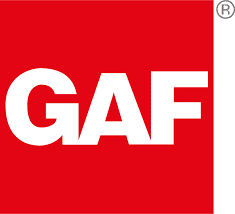In the last decade, our state of Colorado has experienced record-breaking hailstorms that have caused billions of dollars in property damage, including damage to our commercial and residential roofs. Finding a roofing material that can handle the unpredictable hailstorms can make all the difference in the world and help prevent the inconvenience of having to get a roof replaced sooner than expected.
In this comprehensive guide, we’ll share the best roofing materials specifically designed to withstand the hailstorms that Colorado experiences. We’ll delve into each material’s durability, cost-effectiveness, and various other factors that should influence your choice when it comes to roofing in Colorado.
Understanding the Impact of Hailstorms in Colorado
Colorado is one of the most hail-prone states in the country. These storms can produce hailstones of all sizes, but hailstones larger than 1 inch in diameter are considered severe. Hail damage to roofs can be extensive and costly to repair, and in some cases, hail can even damage the structure of a home or building. Homeowners and commercial building owners need to choose a roofing material that is durable enough to withstand hailstorms.
Factors to Consider When Choosing a Hail-Resistant Roofing Material
When it comes to selecting a roofing material that can withstand Colorado’s hailstorms, there are several crucial factors that should guide your decision-making process.
- Impact Resistance
Impact resistance is a measure of how well a roofing material can withstand the impact of hailstones. Impact resistance is tested using a standard test method, and roofing materials are assigned a rating based on their performance.
Roofing materials are rigorously tested to determine their level of impact resistance. Various testing methods, such as the UL 2218 classification, are used to evaluate a material’s performance under simulated hailstone impacts. These tests result in ratings that can help you assess a material’s ability to withstand hail. - Durability
Durability is a measure of how well a roofing material can withstand the elements over time. Roofing materials in Colorado need to be able to withstand hail, snow, high winds, and extreme temperatures.
Assessing a material’s durability also involves considering its lifespan. While some roofing materials may have a higher initial cost, their longevity can make them more cost-effective in the long run. Factoring in maintenance and repair costs over time is essential when making a decision. - Cost
Cost is often a significant consideration for homeowners. Different roofing materials come with varying initial costs. It’s important to weigh these costs against the benefits and longevity of the material to determine its overall value.
In addition to initial costs, you should also consider potential cost savings associated with each roofing material over time. This can include lower maintenance and repair expenses and improved energy efficiency, which can lead to reduced utility bills. - Aesthetic Options
While the practical aspects of roofing materials are crucial, aesthetics also play a role in decision-making. Your choice of roofing material can significantly impact the overall look and curb appeal of your property. Consider factors such as the color, texture, and architectural style of your roofing material. Some materials offer a wide range of design options, allowing you to achieve a look that complements your property’s aesthetic.
Best Roofing Material for Hail in Colorado
The best roofing materials for hail in Colorado are those that are impact-resistant, durable, and affordable. Some of the most popular hail-resistant roofing materials in Colorado include the following:
- F-Wave Roofing Shingles
F-wave roofing shingles are incredibly light, durable, and low-maintenance. They can withstand winds of 130 miles-per-hour and have a class 4 hail rating. They are Class A fire-rated, can withstand heavy UV rays, and hold up against extreme weather conditions. Buyers have options of roofs that look like cedar shakes, slate, or asphalt. One of the best parts of the F-wave roof is that they are the only manufacturer to offer a hail warranty, which can come in handy living in Colorado. They provide Class IV Hail Impact Resistance Coverage for single-family detached structures for five years. - Class 4 Roofs
Class 4 roofs are the highest impact rating roofs you can get. They can withstand hail as big as 2 inches. Because of this, you’ll spend less on maintenance and replacement costs over time. They are made from copper, plastic, aluminum, asphalt, or resin shingles. They can stand up to 110 mile-per-hour winds and they have an impact resistance rating of UL 2218, the highest in the industry. If you’re looking for long-term protection against damaging hail and wind, Class 4 roofs are the way to go. Additionally, multiple insurers offer discounts if you install this type of roof. - Metal Roofs
Metal roofing is one of the most durable and impact-resistant roofing materials available. Metal roofing comes in various materials, such as steel, aluminum, and copper. Each material offers unique benefits and drawbacks. The type we recommend will all depend on where in Colorado you live. Metal roofs can withstand hailstorms, high winds, and extreme temperatures. Because of that, metal roofing can be more expensive than other roofing materials. - Rubber Roofs
Also known as EuroShield roofs, rubber roofs are incredibly sturdy as they absorb the impact of hail, allowing the hail to bounce off. They are also low maintenance and can meet the UL 2218 impact rating. Rubber roofs are made from recycled tires, but don’t worry, they can look beautiful and come in a few different colors and looks. One thing to keep in mind is that rubber roofing is not as durable as some other roofing materials and may need to be replaced more often. - Asphalt Shingle Roofs
Asphalt shingles are one of the most popular roofing materials in the country, and for good reason. They are cost-effective, easy to install, and come in a variety of styles and colors. There are various types of asphalt shingles, each offering different levels of impact resistance. Some asphalt shingles are designed and tested to withstand hail better than others. Understanding these differences is crucial when making your selection. - Slate and Tile Roofs
Slate and tile roofing materials are known for their durability and timeless aesthetics. While they are not as common as asphalt or metal roofing in Colorado, they offer unique advantages for property owners looking for a distinctive and long-lasting roofing solution. Slate and tile roofs can last for decades and add a touch of elegance. They are highly resistant to hail damage, making them a suitable choice for hail-prone areas.
Roofing Material Maintenance and Repairs
All roofing materials require regular maintenance to keep them in good condition and extend their lifespan. Property owners should inspect their roofs regularly for signs of damage, such as missing shingles, cracked tiles, or rust.
If hail damage is found on a roof, it is important to repair the damage as soon as possible. Even minor hail damage can make a roof more susceptible to further damage in the future. When that happens, contact a qualified roofing contractor to repair hail damage.
Selecting the Right Roofing Material
When choosing a roofing material for a home or commercial property in Colorado, it is important to consider all of the factors involved, including impact resistance, durability, cost, and aesthetic options. Making this decision alone is not always easy, which is why we recommend consulting with experienced roofing professionals.
Another consideration is location. Factors to keep in mind here include altitude, local weather patterns, and geographical features. For example, for properties in high-altitude areas, you may need to choose a roofing material that is designed for high winds and extreme temperatures.
Final Thoughts
In addition to the roofing material mentioned above, the installation is just as important. If the roof isn’t correctly installed, there will likely be roof damage and additional maintenance costs down the line. Always go with a trusted and reputable roofing company to install your new roof.
And if you suspect roof damage because of a severe hailstorm, we recommend getting it inspected right away to prevent the possibility of obtaining additional damage from letting it sit. Document any damage, including water spots inside the home, and check insurance documents to see what’s covered.
If you’re still unsure about which type of roof makes the most sense for your Colorado home or commercial property, our experts can. We offer free consultations and can also help with explaining the roof insurance claim process. We offer complimentary upgrades on every roof we install and are happy to answer any questions you might have to give you peace of mind. Contact Axe Roofing today!
Related Articles:














